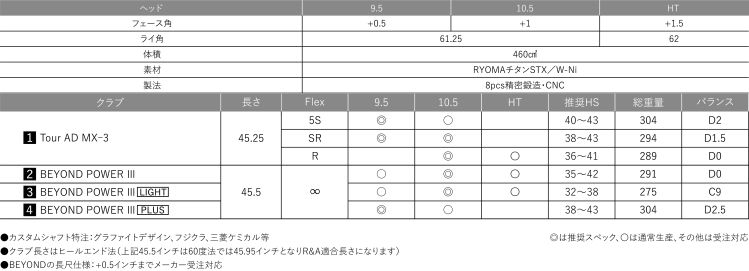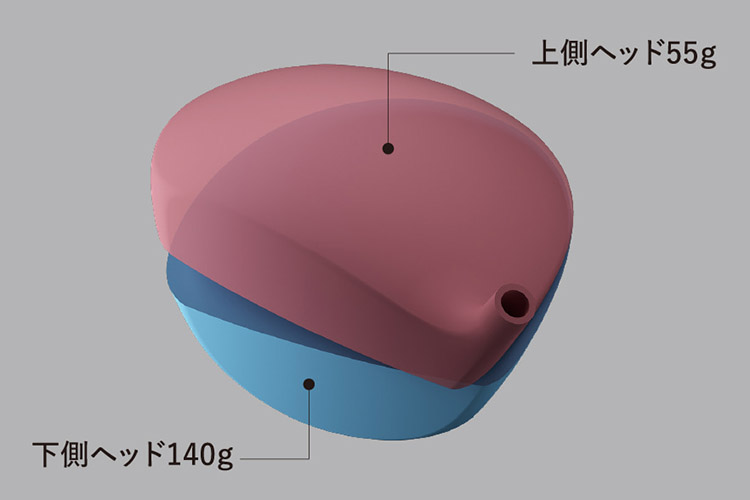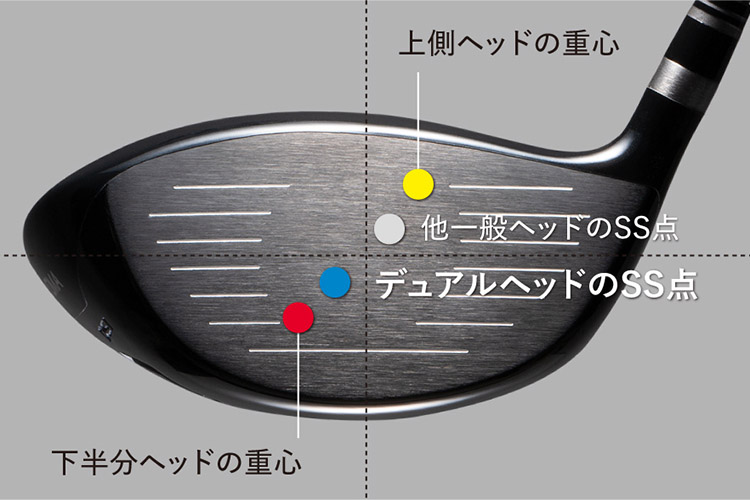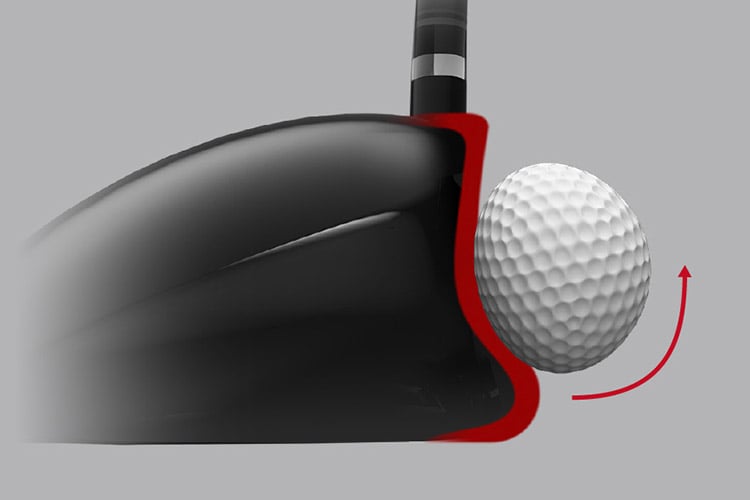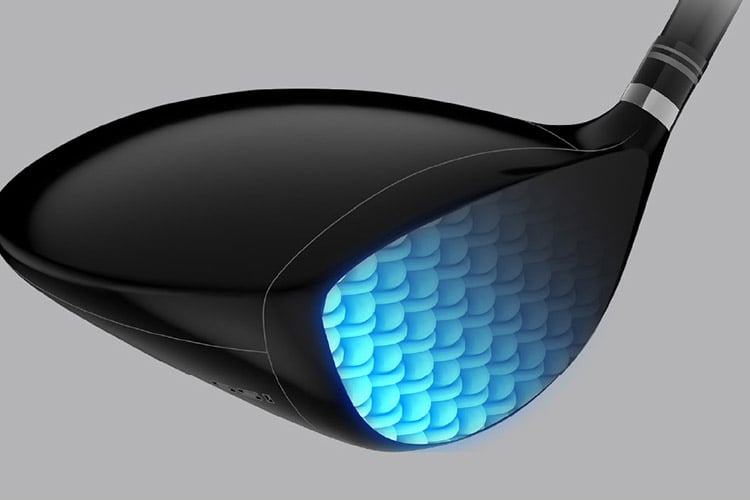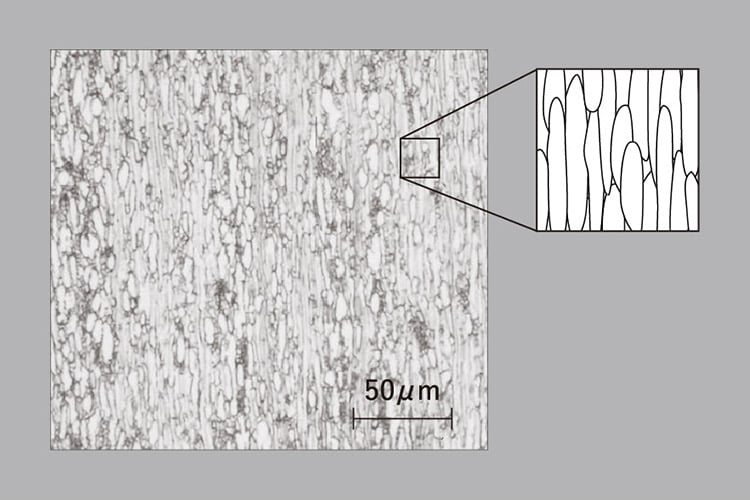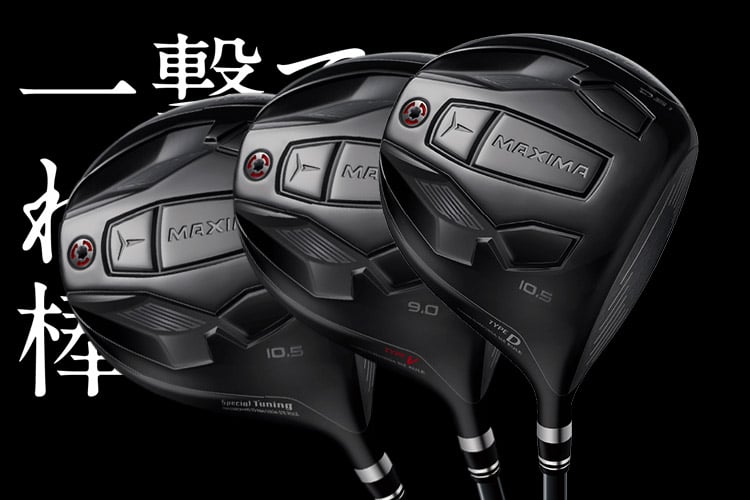
THE NEW RYOMA MAXIMA III
Here at TourSpecGolf, we’re huge fans of Ryoma equipment. Their designs are some of the most refined and well-thought-out, always translating into noticeable performance gains for our customers.
The new MAXIMA III, like its predecessors, is packed with cutting-edge technology. Let’s dive into an overview of the MAXIMA III models to help you decide which version is best for you.
MAXIMA III Models:
TYPE-D: This is the best seller, suitable for a wide range of golfers. It features a slightly closed face and internal weighting that supports a draw.
TYPE-V: Ideal for players who struggle with hooks, this version offers a square face angle and neutral internal weighting. The swing weight is slightly heavier as well.
SPECIAL TUNE (non-conforming): Recommended for golfers who don’t play in sanctioned tournaments. Not suitable for players swinging over 100 mph, as the thinner face may crack. This driver features a high COR, transferring more energy at impact for higher ball speeds and increased distance. Even off-center hits benefit from this, offering more distance with less effort without sacrificing control.

What to Expect
Ryoma has benchmarked the world’s top-selling and most popular drivers to deliver something noticeably superior in performance, feel, fit, and finish.
The new MAXIMA is designed for extremely low spin, allowing it to fly straight and far, resulting in a big carry. As the ball lands at a shallow angle, it creates a large forward kick and roll. The three key factors are high initial ball speed, extremely low spin, and high trajectory.
Dual Head Structure
Combining two different heads, top and bottom
The design theory combines two heads with different characteristics—one focused on control and the other on power. This results in a head that naturally pivots during impact, creating a high-launch, high-draw shot with very low spin. The added weight distribution on the bottom half makes the head turn automatically, increasing impact time by 15%. This design produces shots with a higher trajectory and more carry, perfect for getting those extra yards with minimal effort. The Type-V (neutral-biased version) does not promote a draw as much as the Type-D.
Mechanism by which the lower head works
The lower head weighs approximately 140g (72% of total head weight), while the upper head weighs 55g. The lower head rotates toward the ball, acting like a pivot point, and in the Type-D, it naturally produces a high trajectory and high draw shot. The Type-V promotes a high trajectory.
Ryoma found a new way to provide players with launch and extremely low spin without sacrificing distance—something that traditionally has been difficult to achieve. A super low-spin head typically doesn’t provide enough spin for slower swingers to get the launch they need for optimal distance.
CG that combines extremely low spin and a wide sweet spot
Metagrid Face
When a driver face flexes vertically during impact, it can increase backspin due to upward friction from the loft. Ryoma tackled this issue by developing a face that flexes less vertically and more horizontally. They achieved this by repeatedly forging titanium, altering its rigidity by 150% in different directions. The result is the Metagrid Face, which behaves like a tightly-strung racket, releasing high-speed, low-spin shots for greater distance and accuracy.
Typical vertical deflection of face
Triple Impact: In a typical driver head, only the face flexes during impact. However, the MAXIMA III’s innovative design creates three distinct impact points. First, the Metagrid Face flexes at the initial impact, followed by the high-elasticity rim around the face in the mid-phase, and finally, the high-rebound body flexes at the end. This “Triple Impact” creates an exceptionally wide sweet spot, ensuring that even on mis-hits, ball speed remains high, significantly improving average driving distance.
Final Thoughts
The Type-D and Special Tune models share similar head specs. The 9.5° model has a half-degree closed face angle, the 10.5° model has a full degree closed face, and the new HT model, with the highest launch and most draw bias, features a 1.5° closed face angle. The Type-V sits square and has a slightly heavier head weight.
Lastly, let’s talk shafts. Three new shafts are available. For better players, there’s the TOUR AD MX-3, offered in 50g and 60g versions, but only in stiff flex. Then there’s the Beyond Power shaft, which I’d call the original autoflex before autoflex existed. There are three types of BP shafts: Standard, Light, and Plus. The Type-V model is only offered in the BP Plus version, which has a stiffer tip section to help avoid hooks.
Ryoma Maxima Type D Driver
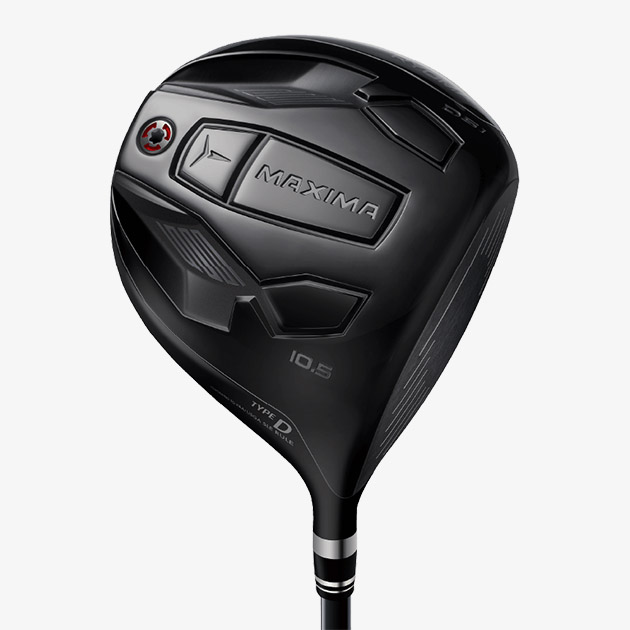
SPEC
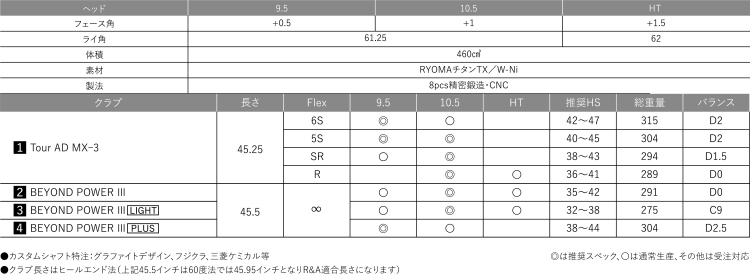
Ryoma Maxima Type V Driver
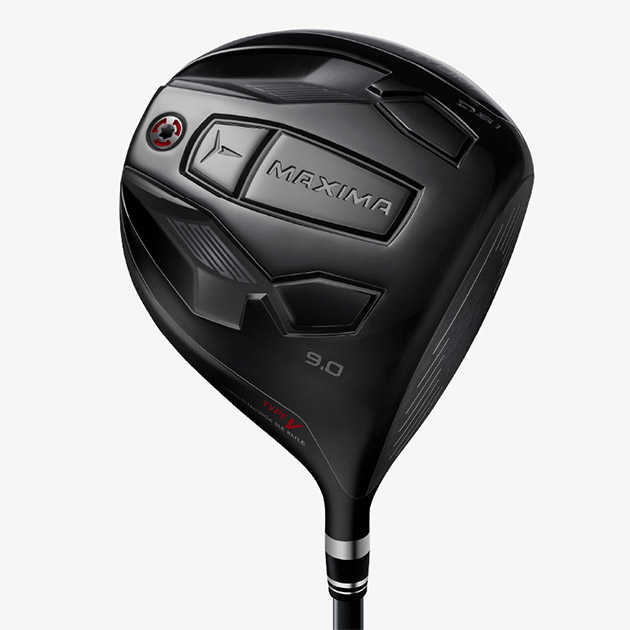
SPEC

Ryoma Maxima Special Tuning Driver
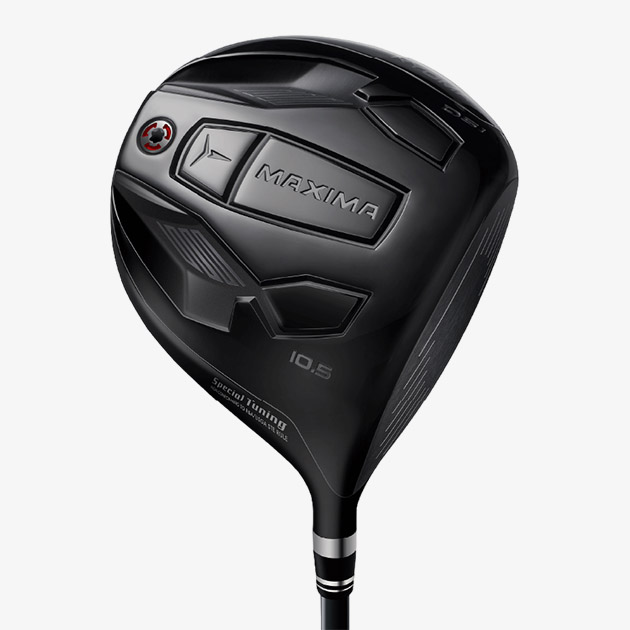
SPEC
